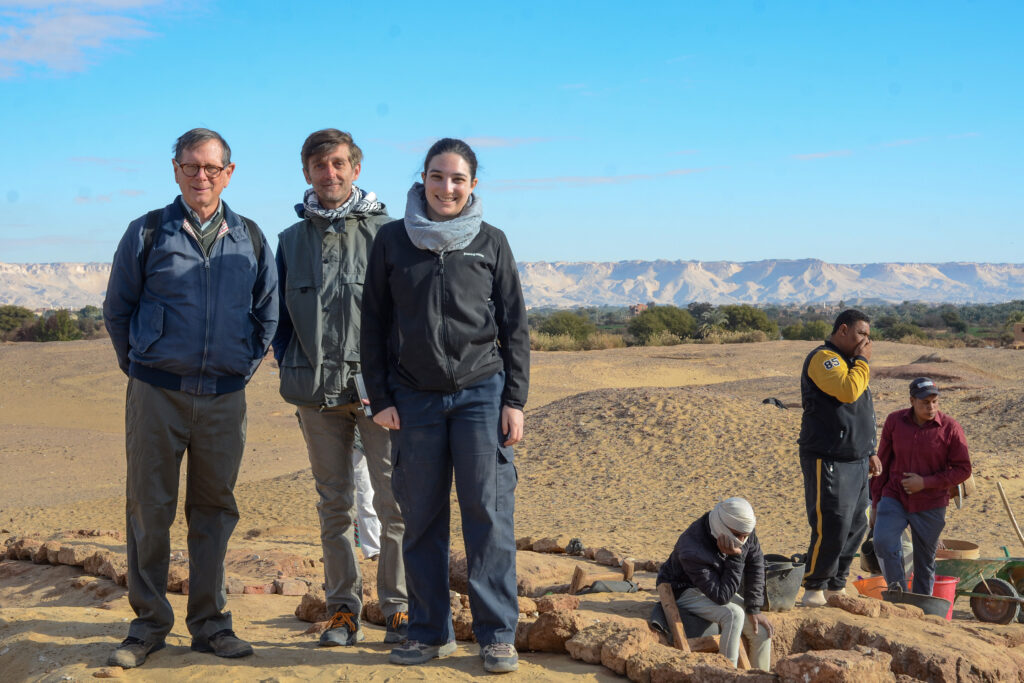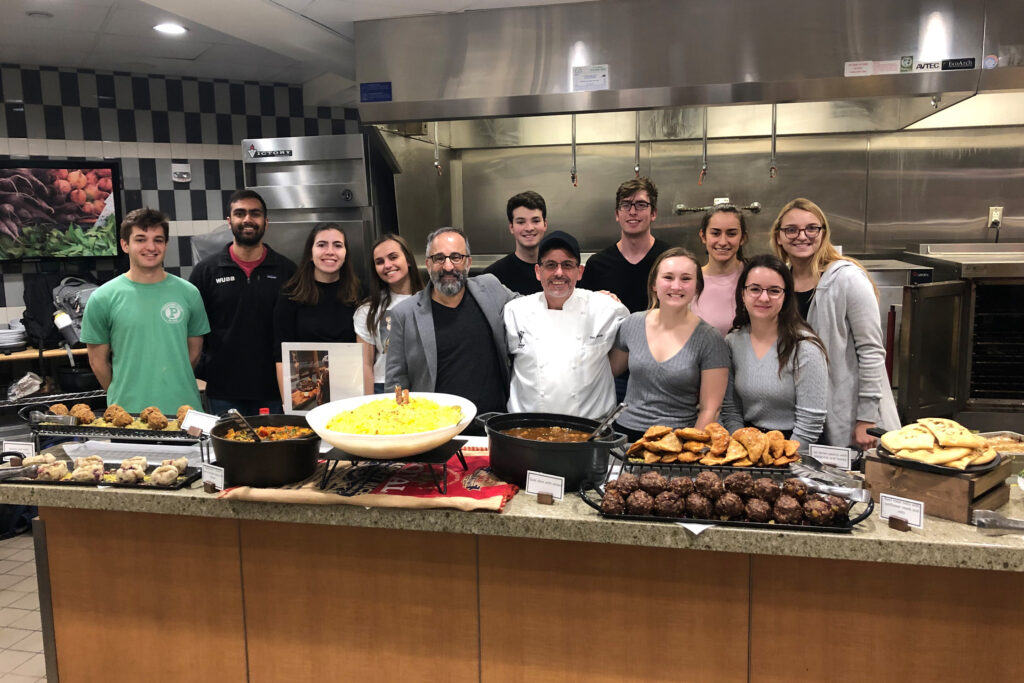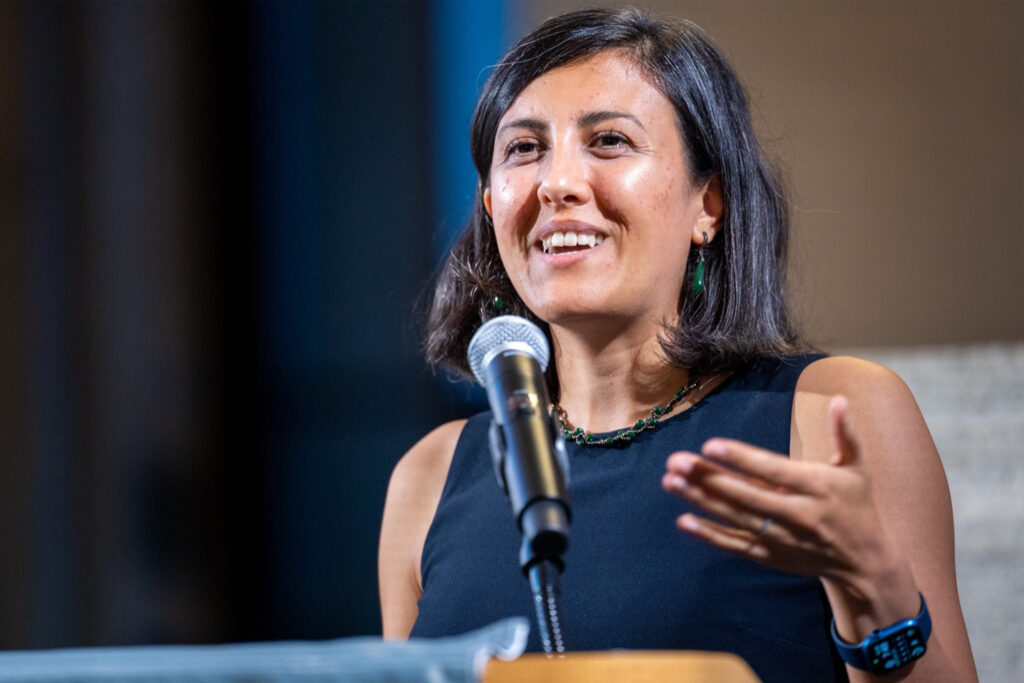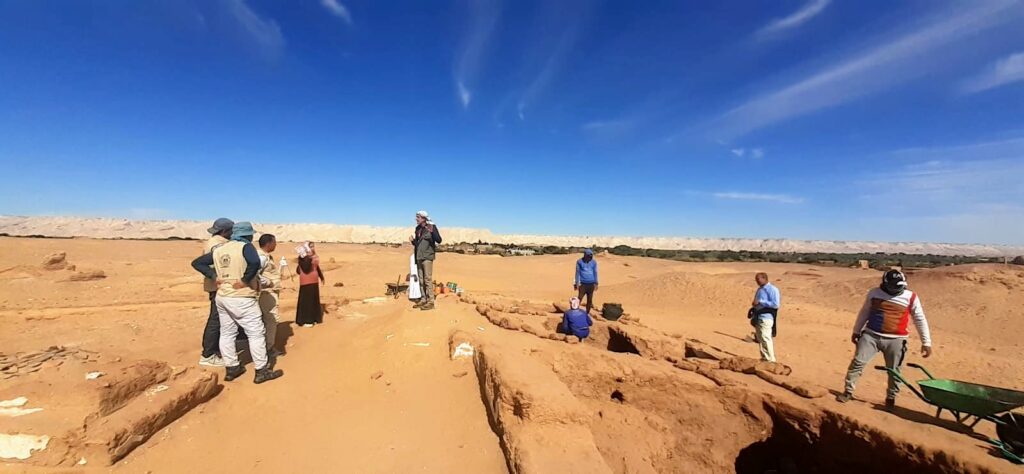WashU’s enduring partnerships with researchers and institutions in the Middle East have gained momentum over the years in meeting the needs of our world’s communities.
The response to the outbreak of the COVID-19 pandemic clearly demonstrated the value of international partnerships and collective solutions. The urgency spurred researchers at the university’s Social Policy Institute to conduct studies with Israeli colleagues that resulted in policy recommendations for the Knesset, the legislative branch of the Israeli government. Studies also sparked strategies to mitigate the effect of the virus on children, benefiting both Israel and the greater international community.
In Egypt, researchers from WashU and Alexandria University are developing innovative wastewater treatment systems to enhance resource recovery and wastewater reuse. WashU researchers are also working with international colleagues on excavations in the Egypt’s Dakhla Oasis and other regions to piece together stories of complex, evolving cultures that inform and impart valuable lessons today.
At WashU, students can study in the Department of Jewish, Islamic, and Middle Eastern Studies, which is unique among North American universities. No other university department affords students the opportunity to explore these subjects in such a profoundly cross-disciplinary environment. Students can also participate in an educational exchange between WashU and the Israel Summer Business Academy that immerses students in the entrepreneurial Israeli business environment, known for its resilient and technologically advanced market economies.
While culture explains some of the differences among people, it also serves as a cover to serious questions about class, gender, race, and political economy.
Hayrettin Yücesoy, on the history of Middle Eastern cooking,
Director of Undergraduate Studies for Jewish, Islamic, and Middle Eastern Studies
Research excellence
Students at WashU can pursue degrees in Jewish, Islamic, and Middle Eastern Studies, which is unusual among North American universities. No other university department provides students with the opportunity to investigate these topics in such a deeply cross-disciplinary setting.

Early Christian architecture in Egypt’s Western Desert
In 2022, Nicola Aravecchia, assistant professor of classics and of art history & archaeology at WashU, assumed the role of archaeological field director at the ancient site of Amheida in the Dakhla Oasis, one of the most remote of the oases in Egypt’s Western Desert. Established in 1978, the Dakhla Oasis Project has produced many significant discoveries.
More research stories
The politics of environment and Egypt’s Aswan High Dam
Nancy Reynolds is documenting Egypt’s construction of the Aswan High Dam for her second book project.
Social Policy Institute improves social mobility in Israel and beyond
The Social Policy Institute (SPI) at WashU provides a systems-level understanding of policy problems and promotes corresponding solutions.
Wastewater treatment system recovers electricity, filters water
Engineering professor Zhen (Jason) He’s lab has developed one system that recovers both, filtering wastewater while creating electricity.
Education and outreach
The collaborative efforts between WashU and colleagues in the Middle East demonstrate a commitment to education and outreach, seeking to share knowledge and insights with broader audiences and contribute to the development of sustainable and equitable solutions to global challenges. Through educational exchanges, students can learn from Israel’s resilient and technologically advanced market economies, gaining valuable skills and perspectives that will prepare them for leadership roles in their future careers.
Programs and partnerships
The Department of Jewish, Islamic, and Middle Eastern Studies (JIMES) at Washington University is devoted to the study of the history and cultures of the Near East, and of the Jewish and Islamic civilizations, both individually and comparatively. Its integrated curriculum offers a focal point for cross-cultural academic exchange that highlights the shared experiences and mutual influences of the two civilizations while paying close attention to the historical context of social change and cultural production.
Faculty members conduct their research and teaching through a wide array of methodologies and disciplinary approaches and offer courses in language, literature, history, religion, politics, and culture.
Washington University is unique among North American universities in having a department that encompasses Jewish studies, Islamic studies, Arabic, Hebrew, and Hindi. No other department housed at these institutions affords students the opportunity to explore these subjects in such a profoundly cross-disciplinary environment.
The Israel Summer Business Academy offers a unique opportunity for undergraduate students to study and immerse themselves in the Israeli business environment. Students learn about Israeli entrepreneurship, innovation, and non-profit consulting through coursework, speakers, company visits, and non-profit consulting. Students with a wide spectrum of backgrounds learn about a different side of the business within a country that has built itself around entrepreneurship.
Israel has more start-ups per capita than any other country in the world, with 65 percent of the companies still in business after five years. With a population of about 8 million, Israel is No. 3 on the list of countries with the most companies listed on NASDAQ, behind only the United States and China.
Modules include the “Business, Innovation, and Entrepreneurship in Israel” course, which outlines Israel’s economy, various industries, culture, and politics, along with the business challenges and opportunities the country faces. Students visit innovative companies, meet with Israeli entrepreneurs and venture capitalists, and gain insights from government officials.
Watch video about the Israel Summer Business Academy and hear students describe their exciting experiences in the program. Read how the Olin School’s Israel Summer Business Academy has enriched Washington University students over the years in the Olin Blog.

Of Dishes, Taste, and Class: History of Food in the Middle East
Among the courses Hayrettin Yücesoy teaches is one on the history of food in the Middle East. Students who enroll in the popular class receive an educational experience that is rarely offered on campus.
More education stories
“If you want safe communities, you need strong girls”
In 2001, Heather Cameron was teaching in Berlin when she had a novel idea that has transformed lives and communities around the world: start a female boxing club.
Sayed Kashua’s novel adapted into award-winning film
Doctoral student Sayed Kashua’s novel “Let It Be Morning” was adapted into a film that garnered international acclaim.
Washington University delegates attend climate change conference in Egypt
Each fall, students in Beth Martin’s course on “International Climate Negotiations” learn about climate change while also gaining rare access to international climate policy negotiations.
Alumni networks and impact
International networks support WashU alumni, students, families, and friends by offering opportunities to socialize, network, and share memories. We welcome you to reach out, make new connections, and build on your lifelong connection with WashU.
You can update your personal profile using the form below for our alumni directory.
WashU CNX is the university’s online networking platform where alumni and current students share experiences and expertise, ask questions, find answers, and help each other grow. They make meaningful connections every day.
NETWORK CONTACT
Vijay Ramani
Senior Vice Provost for Graduate Education and International Affairs
- 314-935-7924
- International.Alumni@wustl.edu

Gülcan Yayla Expands Employment Opportunities for Youth and More
Gülcan Yayla, MBA/MSW ’17, grew up in a community in central Anatolia where girls and women had few educational opportunities. She was determined, at an early age, to change this dynamic for herself and her older sisters by convincing her father to continue their education into high school.
Latest news in Middle East
Explore our impact in other regions
No single map can reflect all global perspectives. The country borders on this map do not reflect the official policy of Washington University in St. Louis or any specific government.



